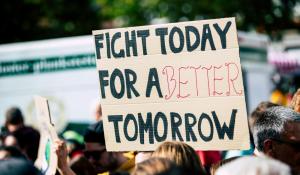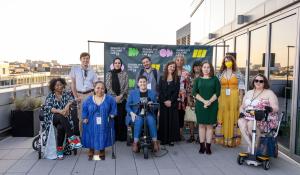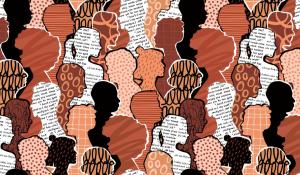
Bernard Yu, Green America’s content strategist and information architect, has experience facilitating dialogue among participants from different backgrounds. Bernard offers this advice to groups working on climate justice who would like to become more diverse and inclusive.
The modern environmental movement‚ which has done much good‚ was started by White people. As such, historically, the movement’s focus has tended to be in preserving open space.
But as this issue demonstrates, this doesn’t serve all communities, so we need to take a hard look at the movement and discover whose voices are left out when we decide what issues deserve our focus. Privileged communities cannot define sustainability purely on what reaches their consciousness. Because communities of color‚ which are often the most vulnerable to climate change‚ have needs and considerations that those outside of them may not know or understand.
And so…
The first duty of those with additional privileges is to listen.
The second is to try to truly understand what others are saying before responding.
We all have privileges, and we all have disadvantages. Our unique set of each shapes our particular worldview. But this is not a ladder of privilege. Rather, it is best to think of privilege as a set of lenses through which the world sees us and through which we see the world. And having one lens does not preclude or prevent having another. So we must use our disadvantages to understand and empathize with the disadvantages of others, and redirect our privileges to amplify the voices of those without.
Those of us with the most privileges have a duty to work harder to raise others up because we are the ones with the resources to do so. Our role is not to co- opt their voices, but to hear them, understand them, amplify them, and find ways to work together to create the change in the world we all seek. Only then, when everyone’s voice is heard and understood, will we be able to create a society that sustains and nourishes all.







